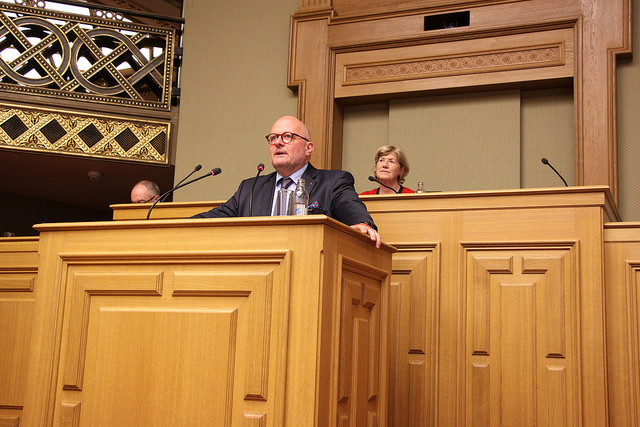In a debate on the future of the EU held this week, the committee on foreign affairs presented the report which it had been working on for over a year and a half.
After numerous exchanges with academic experts, national and EU civil servants, and members of Luxembourg’s civil society, such as trade unions and the various trade chambers, MPs analysed the current state of the EU and examined the white paper on the future of the EU.
After several simultaneous crises, such as the possibility of a Greek exit from the euro, the refugee and migration crisis, the crisis of the rule of law in some member states, Brexit and the danger of populism, MPs emphasised that the EU should focus on results. It needed to be closer to its citizens.
Most of them agreed that treaty change would be out of the question. This would exclude a Eurozone parliament. Neither is there a political will in the member states for this at the moment, nor could it be achieved quickly--and the EU needed a new political drive.
Furthermore, the provisions of the Lisbon Treaty had not yet been exhausted, especially in the area of reinforced cooperation. The areas of defence and economic union were two domains where things could move forward. Luxembourg’s parliamentarians called for a stronger social dimension of the EU in the European economic and monetary union.
The report rapporteur, LSAP MP Marc Angel, said that the European Commission should put the social dimension in every proposal, that the social partners should be involved much earlier in the decision-making process.
Deepening within the current treaty
Angel said that: “we want a deepening of the EU in the framework of the current existing treaties.”
He added that many things could be adapted and developed in this report, but that it was a good basis.
Angel especially noted that parliamentary scrutiny of EU proposed directives and regulations should be improved. For that a clear definition of the concept of subsidiarity was needed, but parliament should also get more time (from 8 to 12 weeks) to come up with a position.
He then presented the various scenarios that the white paper proposed, and suggested that the status quo (scenario 1), reduce the EU to the single market (scenario 2), and do a lot more together (scenario 5) were all neither desirable nor would they solve any problems.
The idea of a core Europe (scenario 3) and the idea to do more in a more efficient way (scenario 4) were seen as most promising by most MPs. If reinforced cooperation should become more prominent, it was nevertheless imperative to avoid the creation of “blocs”, Angel said. He hoped that the unity that Europe demonstrated in the face of Brexit could be transposed to the EU framework.
Weak parliamentary control on EU matters
Angel criticised that parliamentary control of EU policy was very weak, if not non-existent, and needed to be strengthened urgently.
Control of national parliaments and the European Parliament in the context of the European semester and other financial instruments needed to be better defined and strengthened, said Angel. Parliaments should take on a much more constructive role, but would need to start with themselves.
The resolution stated that parliament would seek closer cooperation with the government to discuss the national position on all sorts of European issues by inviting members of the government to the committees before and after council meetings.
It also pledged to invite the prime minister to the competent committee depending on the agenda of the European Council, or to invite Luxembourg’s members of the European Parliament.
The resolution called to increase its own expertise in European affairs, to have access to impact evaluations by the ministries, to have more debates on European affairs in parliament, to exchange views more often with civil society, to define the issues which should have priority and where the parliament should take a position.
